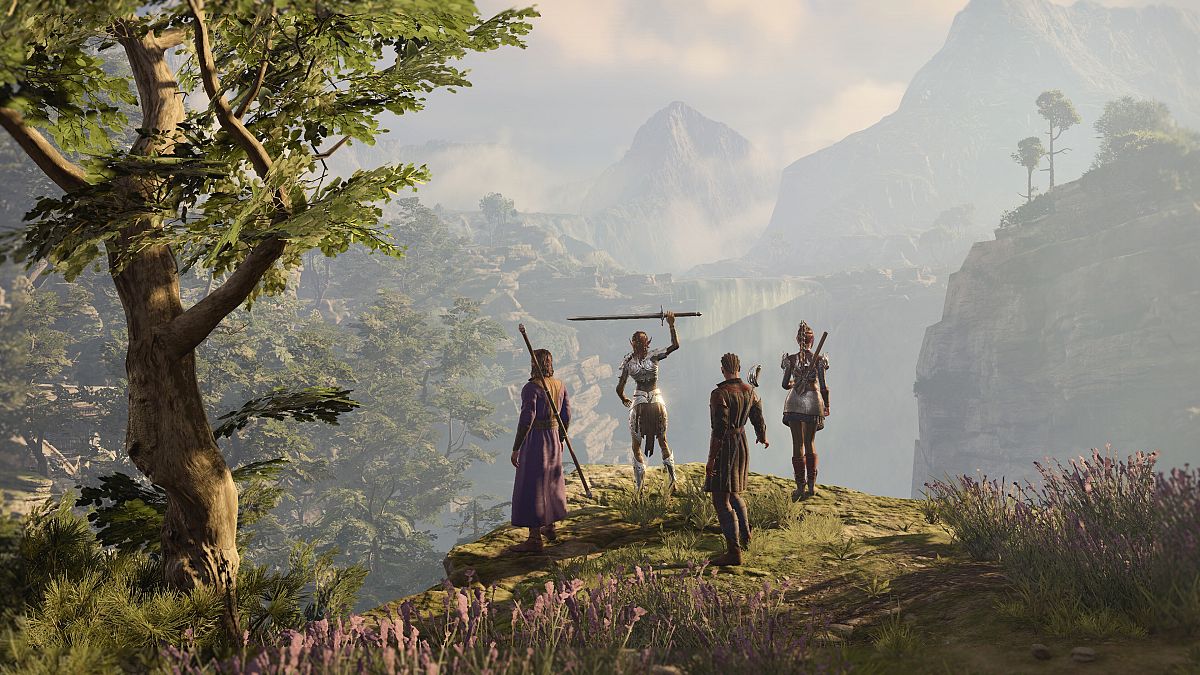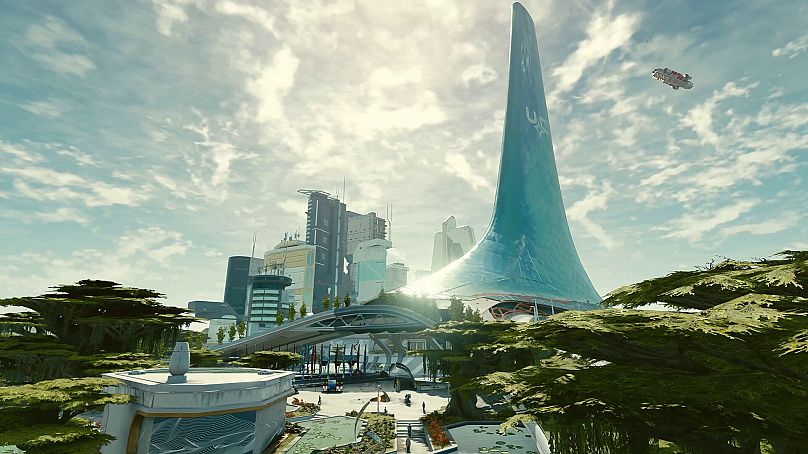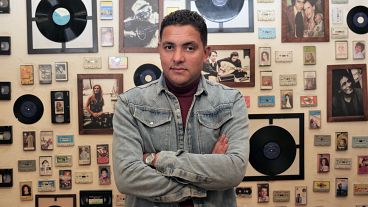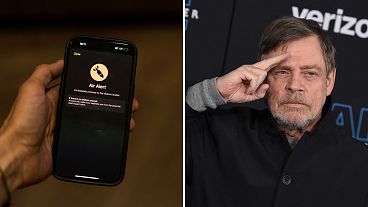Artificial intelligence can help video games expand their worlds by cloning actors’ voices. But ethical and practical questions remain as unions negotiate with major gaming studios.
Video games are getting bigger and more complex, with sprawling open worlds that offer countless possibilities for character interactions and conversations.
But with those expanding worlds and characters comes the need for more voices, and some game studios have been experimenting with AI tools like voice cloning to make the task easier and more cost-effective.
Professional video game voice actors are split over the new technology – some fear that AI voices could replace all but the most high-profile human actors; others have been open to the idea as long as their voices aren’t misused and the pay is fair.
British voice actor Andy Magee has lent his voice to several video game characters, with a diverse range of personalities and accents from across the British Isles – like a goblin with a Cockney accent and a Scottish blacksmith.
But the voices that make it to the final game don’t belong to Magee – they’re actually synthetic voice clones generated by artificial intelligence.
“I hadn’t really anticipated AI voices to be my break into the industry, but, alas, I was offered paid voice work, and I was grateful for any experience I could get at the time,” Magee told the Associated Press.
How does voice cloning work?
Magee was first approached about voice cloning by Replica Studios, an Australian company that describes itself as “creating the world’s most ethical and usable AI voice platform for games and film.”
Replica Studios is the only AI voice company to have secured a deal with the SAG-AFTRA actors’ union, enabling major studios to work with unionised actors to create and licence a digital replica of their voice. The deal also sets terms that allow performers to opt out of having their voices used in perpetuity.
SAG-AFTRA President Fran Drescher described the deal, which was announced at the CES tech show in Las Vegas last month, as “a great example of AI being done right”.
Voice actors like Magee will record different lines either in their normal voice or in character, demonstrating distinct emotions like happiness, sadness, or sometimes battle sounds. Each emotion gets about 7,000 words, with the final dataset comprising several hours of audio that cover every personality of a character.
Once the voice is cloned, paid subscribers to Replica’s text-to-speech tool can make the voice say pretty much anything – as long as it falls within certain guidelines the company has established.
Magee says the experience has opened doors to other acting gigs that don’t involve AI – including a role in the upcoming strategy game Godsworn.
A turning tide for AI voices in gaming?
Despite some positive experiences, AI voice clones still don’t have the best reputation, mostly because they’ve been misused and abused in creating deepfakes of real people – from TV anchors to politicians.
Early attempts by independent developers to add them to video games have generally been poorly received by both gamers and actors. The issue of consent and ownership has also been a massive problem, as many actors were never asked before their voices were replicated.
When it comes to Hollywood, there’s still hope that a deal will be agreed between the actors’ union and gaming studios on the use of AI in productions.
Performer Sarah Elmaleh, who chairs SAG-AFTRA’s negotiating committee for interactive media, said her views have evolved on the use of AI-generated voices in gaming.
“We've seen some uses where the (game developer's) interest was a shortcut that was exploitative and was not done in consultation with the actor," said Elmaleh, who has played the Cube Queen in Fortnight and other high-profile roles in blockbuster and indie games.
But in other cases, she said, the role of an AI voice is often invisible and used to clean up a recording in the later stages of production, or to make a character sound older or younger at a different stage of their virtual life.
"There are use cases that I would consider with the right developer, or that I simply feel that the developer should have the right to offer to an actor, and then an actor should have the right to consider that it can be done safely and fairly without exploiting them," Elmaleh said.
Replica Studios says it aims to keep actors at the centre of voiceovers, licencing their voices for a set period of time, while developing the AI cloning technology in service of more expansive video game worlds.
"They control whether they wish to go ahead with this," said Replica Studios CEO Shreyas Nivas. "It's creating new revenue streams. We're not replacing actors."




